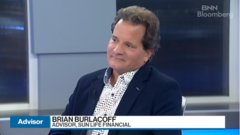Mar 15, 2018
Norman Levine's Top Picks: March 15, 2018
BNN Bloomberg
Norman Levine, managing director of Portfolio Management Corp
Focus: North American large caps
_______________________________________________________________
MARKET OUTLOOK
Stocks seem to have peaked — at least for now — in mid-February and have yet to show any desire to go one way or the other since their correction.
As it was mostly growth stocks, particularly the FAANGs, which contributed the majority of the rise in index values in the U.S., value stocks and small and mid-cap stocks remain reasonably priced and should provide relatively decent protection to any meaningful downside move in markets. They should provide good upside when markets advance again.
We’re still generally positive on the U.S. market as its economy continues to lead the world recovery, but we would like to see better valuations before committing further funds there.
Canada has missed a decade of advancing markets. Due to the makeup of our market, which has an overexposure to commodity and especially energy stocks, we’re back to where we were in 2007. Obviously, that has hurt Canadian investors who aren’t geographically diversified outside Canada.
We’re looking for companies in Canada and outside the U.S. which have decent valuations but also have international exposure.
Interest rates around the world are increasing from near-zero (actually negative in some countries) to more normal rates. At some point this will cause pain for stocks, as bond yields approach and possibly surpass dividend yields. Rising rates are indicative of improving economies, which is good for stocks, but only until bonds become too competitive and draw too much money away from equities. We’re not there yet.
TOP PICKS
QUALCOMM (QCOM.O)
Bought on Oct. 18, 2017 at $52.27.
Qualcomm is a global leader in the design, manufacturing and marketing of digital communications products and services. In essence, Qualcomm’s core competency is being a chipmaker for smartphones and related cellular networks. Broadcom's offer to purchase the company at $79 per share was set aside by the U.S. government on national security concerns.
The company continues to diversify its chips from mainly smartphones to other areas. It's in the process of buying NXP Semiconductor, which specializes in automobile chips. This deal still needs approval by Chinese regulatory authorities. Assuming its approval and the settlement of certain legal disputes, the company released projections of earning $6.75 to $7.50 per share in 2019. The stock is cheap if the company’s projections are correct, since it trades at $60 with an almost 4 per cent dividend yield. At $60, even if the company achieves the low end of the earnings range, it trades at less than nine times price-to-earnings.
UNI-SELECT (UNS.TO)
Bought Feb.13, 2018 at $26.07.
Uni-Select is a wholesale distributor of automotive aftermarket parts and paints. It has leading market positions in its three key markets: Canadian and U.K. aftermarket auto parts and U.S. collision paint repair.
The stock had a great start to 2017, but then suffered from two events. First, it’s suffered from a transition away from one if its major paint suppliers in the U.S. Second, its paint operations were widely affected by the hurricanes in Florida and Texas. Investors have also been fretting about Amazon becoming a factor in aftermarket auto parts. For Uni-Select that fear is misplaced, as it sells exclusively to auto repair shops, where broad inventory and speedy delivery are paramount, as opposed to do-it-yourselfers, who are Amazon’s customers. Investors have also questioned its U.K. acquisition, as its margins have suffered lately.
Most recently, Uni-Select reported a poorer-than-expected quarter due to margin pressure issues which, we believe, were one-time related (floods/hurricanes). This has provided an opportunity. We believe that margin expansion through operational improvements will be the key to this stock’s success. It has a 1.7 per cent yield and, due to the debt it incurred (which it hopes to repay quickly) in its U.K. acquisition, this stock is not suitable for very conservative investors.
OPEN TEXT (OTEX.TO)
Bought originally at $26.18 and bought again on Oct. 13, 2017 at $42.12. We continue to buy it for new clients.
Open Text is a consolidator and provider of enterprise software solutions. Their software helps large businesses organize their information – both storing and retrieving. For example, Open Text’s software can assist in organizing customer communication for salespeople. For an industrial company, Open Text’s software can help organize workflow – how work and information move from one person to the next.
The company is an industry consolidator and grows largely through acquisition. The stock had been a laggard in the technology group, due to concerns over its ability to properly digest its recent ones. The latest earnings report shows that the integration is going better than expected and significant margin improvement will lead the way to significant cash flow generation, much more than was estimated. The stock currently yields 1.5 per cent.
| DISCLOSURE | PERSONAL | FAMILY | PORTFOLIO/FUND |
|---|---|---|---|
| QCOM | Y | Y | Y |
| UNS | Y | Y | Y |
| OTEX | Y | Y | Y |
PAST PICKS: MARCH 23, 2017
BADGER DAYLIGHTING (BAD.TO)
- Then: $32.23
- Now: $23.51
- Return: -27.05%
- Total return: -25.90%
SNC-LAVALIN (SNC.TO)
- Then: $52.44
- Now: $56.25
- Return: 7.26%
- Total return: 9.47%
PARKLAND FUEL (PKI.TO)
- Then: $28.99
- Now: $29.61
- Return: 2.13%
- Total return: 6.14%
Total return average: -3.43%
| DISCLOSURE | PERSONAL | FAMILY | PORTFOLIO/FUND |
|---|---|---|---|
| BAD | Y | Y | Y |
| SNC | Y | Y | Y |
| PKI | Y | Y | Y |
WEBSITE: www.portfoliomanagement.ca
TWITTER: @levinepmc












